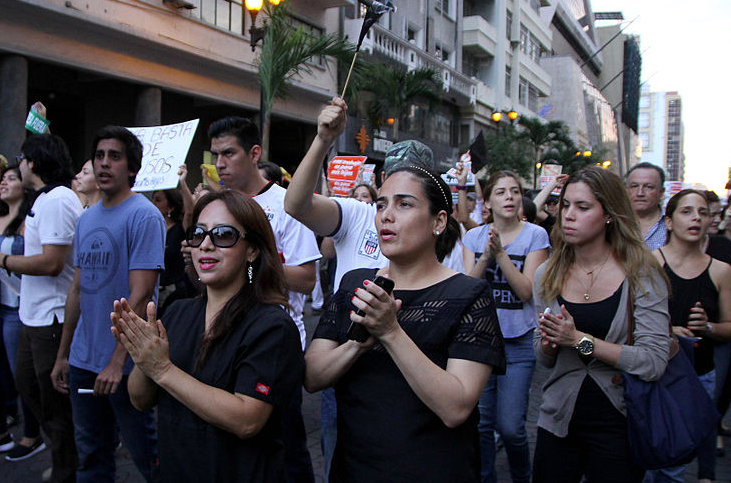 High levels of socio-economic inequality have been an enduring feature of Andean countries for a long time. Despite an extended commodity boom over the past two decades, trends in poverty reduction and the realization of economic and social rights for historically disadvantaged communities have been disappointing, at best.
High levels of socio-economic inequality have been an enduring feature of Andean countries for a long time. Despite an extended commodity boom over the past two decades, trends in poverty reduction and the realization of economic and social rights for historically disadvantaged communities have been disappointing, at best.
With the regional economic slowdown continuing, Andean nations are being forced to choose between pursuing the same shortsighted austerity programs unsuccessfully employed elsewhere, or adopting economic reforms that deliver a new model of sustainable development centered on human rights, equality and environmental sustainability.
After partnering with six regional and national organizations on a series of dialogues in Bogotá and Lima, CESR has published Fiscal Policy for Human Rights and Equality: Mapping debates, initiatives and actors in the Andean region. This report draws on input from more than 50 organizations and experts to offer a strategic road map for potential civil society actions aimed at achieving progressive and structural tax and spending reforms in the Andean nations.
The report finds that as commodity prices have plummeted and corporate tax revenues on extractive resources have decreased, governments have begun to adopt austerity measures and reduce social spending, with profound human rights risks. At the same time, CESR finds that a renewed energy among civil society actors in the region has emerged to confront fiscal policy orthodoxies that have perpetuated the exclusion of marginalized groups adversely affected by austerity. The mapping of regional initiatives showcases the deployment of new tools and approaches in the pursuit of alternative, viable fiscal paradigms based on principles of human rights, equality and accountability. The report also highlights the 2030 Agenda for Sustainable Development and ongoing debates over the reform of global tax governance as key incentives for governments in the region to bring about a shift in fiscal policy-making.
Since the dialogues, CESR has been working with partners in Peru and Colombia to advocate for more human rights-centered fiscal policies in those two contexts. It continues to work at the continental level to encourage greater scrutiny by the Inter-American Human Rights System of the role fiscal policy plays in tackling poverty and inequality. CESR is also working in other countries of the region such as Brazil and the United States to challenge specific tax reforms which could have a particularly damaging impact on human rights and equality, both domestically and internationally. These collaborations all aim to contribute to transforming fiscal policy across the Americas, the world’s most unequal region, so that it serves to promote– rather than undermine – human rights, sustainable development and equality.
Related:
- Briefing: Fiscal Policy for Equality and Rights: Mapping debates, initiatives and actors in the Andean Region
- Video: Fiscal Policy for Equality and Rights in the Andean Region
- Journal of the Public Defender of the City of Buenos Aires with contributions from CESR's Sergio Chaparro Hernández on Fiscal Policy and Human Rights in Colombia and Niko Lusiani on Maximum Available Resources and Human Rights
- The Lima Declaration on Tax Justice and Human Rights
- Colombia Factsheet
- The U.S. Tax March: Highlighting the human rights repercussions of the Trump-Ryan tax plan
- CESR webpage: Human Rights in Tax Policy
Photo of Ecuador protest: Agencia de Noticias ANDES